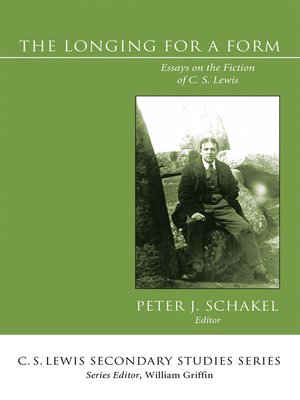The Longing for a Form
ebook ∣ Essays on the Fiction of C. S. Lewis · C. S. Lewis Secondary Studies Series
By Peter J. Schakel

Sign up to save your library
With an OverDrive account, you can save your favorite libraries for at-a-glance information about availability. Find out more about OverDrive accounts.
Find this title in Libby, the library reading app by OverDrive.



Search for a digital library with this title
Title found at these libraries:
| Library Name | Distance |
|---|---|
| Loading... |
C. S. Lewis's extremely popular works of fiction have been widely discussed in terms of the ideas and religious themes they express and defend, but less often in terms of their purely literary qualities. Ironically, Lewis, himself a noted literary critic, would have objected to any such one-sided analysis of his works. To concentrate exclusively, or even primarily, on the content of a work without a consideration of its form and style was, in his view, a seriously unbalanced method of criticism. The Longing for a Form corrects this critical imbalance by supplying a theoretical background and detailed close readings for a better understanding and appreciation of Lewis's fiction as works of art. Following three general studies, a section of the book is devoted to each to Lewis's major efforts in fiction—the Ransom trilogy, the Chronicles of Narnia, and Till We Have Faces—considering the distinctive literary features of each group and individual books within the group. Running through the book is an emphasis on form—as literary kind and as structure—and a recurrent attention to three themes of particular importance in Lewis as a writer of fiction: objectivism, longing, and the literary artist as creator. Individually, the essays supply fresh insights into the style and meaning of specific works by Lewis; as a group they illustrate a depth, technical skill, and unity of thought and theme which have not previously been accorded Lewis as an artist in fiction.







